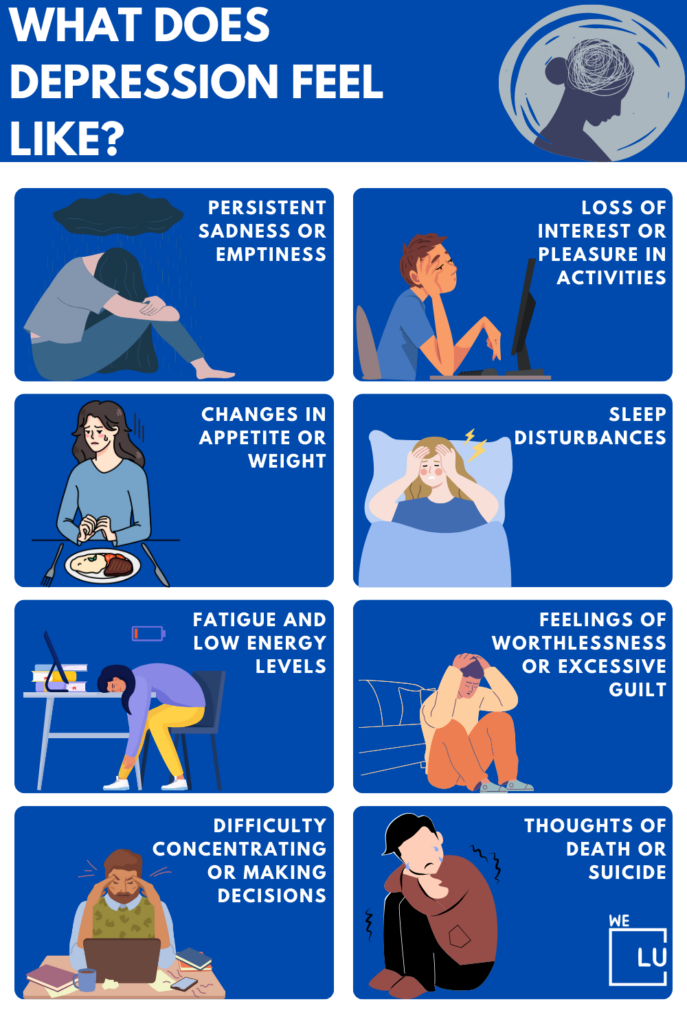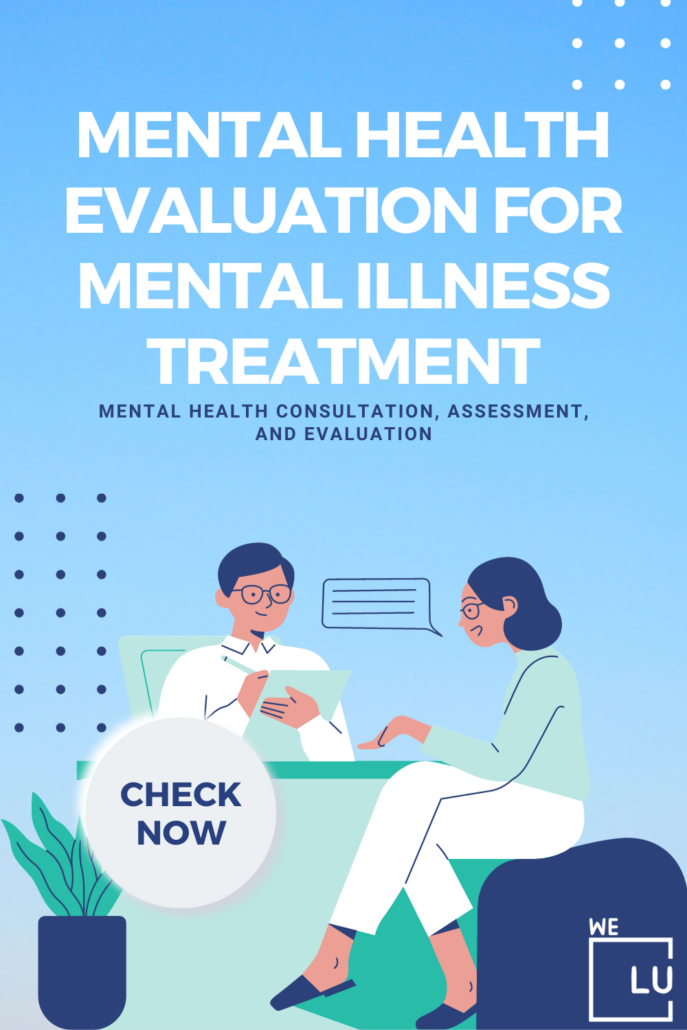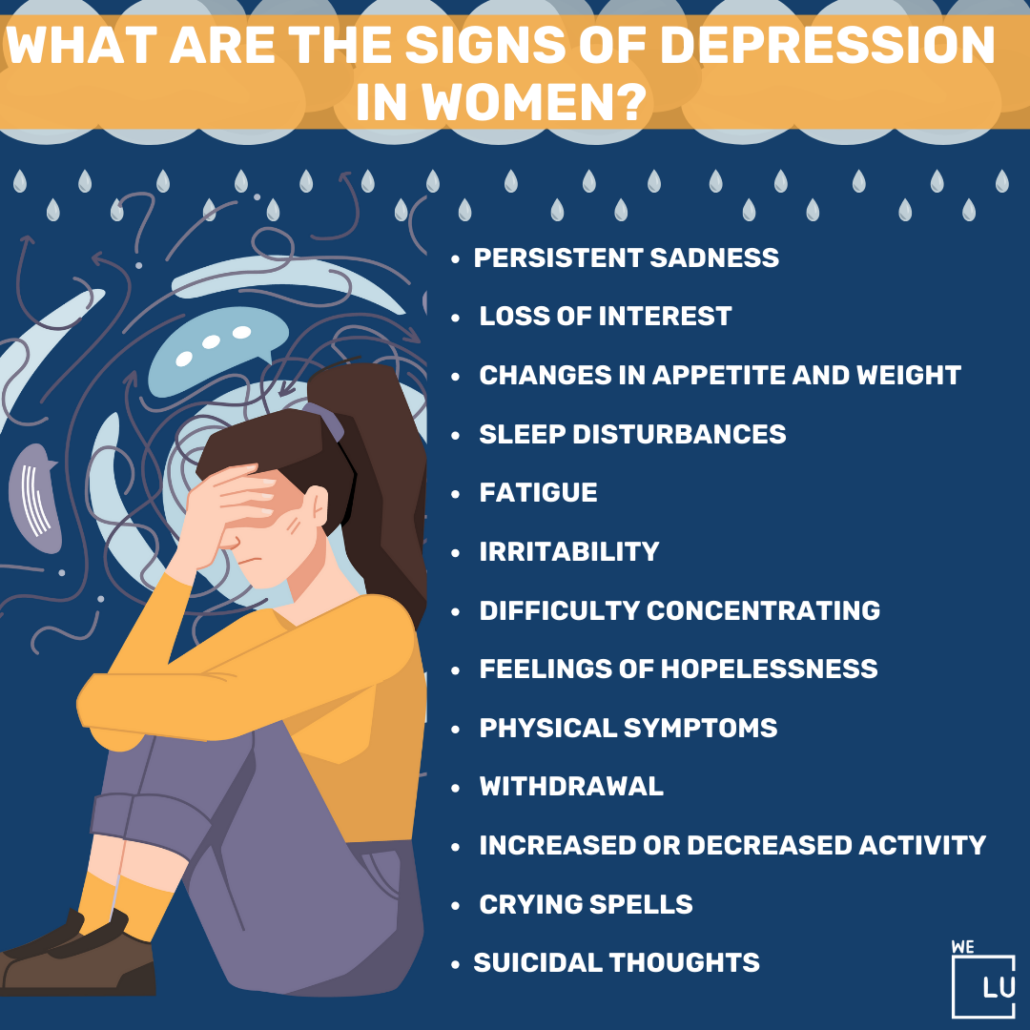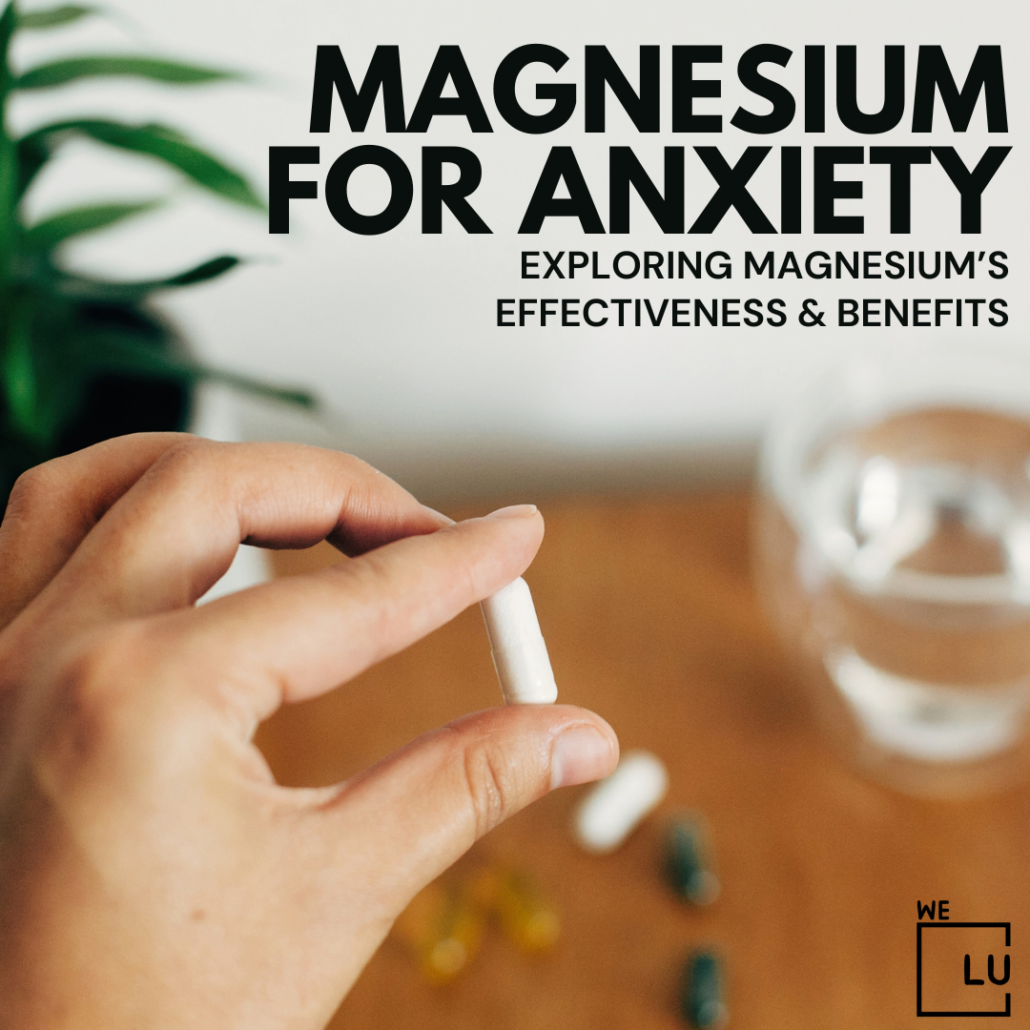What are the Risk Factors for Depression?
Many things, from your genes to what you eat, can increase your risk of depression. Depression is a common mental health issue, affecting about 1 in 15 people each year. Lots of factors can make someone more likely to experience depression.
A risk factor is something that raises the likelihood of getting a disease. In the case of depression, various factors like genetics, psychology, and environment can contribute to it.
The risk factors for depression can affect anyone, making them vulnerable. If you’re feeling symptoms, seek professional help. Contact We Level Up Florida mental health treatment center for compassionate support. Each call is free and confidential.
Overview of the Risk Factors for Major Depressive Disorder
Major depressive disorder (MDD), a prevalent mental health condition, can be influenced by various factors. Understanding these risk factors for depression is crucial for identifying and addressing the complexities associated with the illness.
Here are the critical elements that may contribute to an increased susceptibility to depression:
- Genetics: A family history of depression can increase the risk.
- Brain Chemistry: Imbalances in neurotransmitters may contribute.
- Trauma and Stress: Past trauma or chronic stress can be triggers.
- Medical Conditions: Certain illnesses and medications may play a role.
- Personality Factors: Traits like low self-esteem or pessimism.
- Drug and Alcohol Use: Substance abuse can worsen or trigger depression.
- Loneliness and Lack of Social Support: Isolation can impact mental health.
- Early Childhood Trauma: Adverse childhood experiences may increase vulnerability.
- Gender: Women are more often diagnosed with depression.
- Chronic Illness or Pain: Health issues can contribute to depressive symptoms.
- Changes in Hormones: Hormonal fluctuations, especially in women, can be a factor.
- Family Dysfunction: Unsupportive family environments can impact mental health.
- Lack of Sleep: Sleep disturbances can contribute to depressive symptoms.
- Financial Strain: Economic difficulties may increase the risk.
- Adverse Life Events: Recent losses or significant life changes can trigger depression.
The experience of these factors varies from person to person, and not everyone with risk factors will develop depression. If you or someone you know is struggling, seeking professional help is essential.
Are the Risk Factors Different for Various Types of Depression?
Do all types of depression have different causes? No. Depression usually results from various factors combined, not just one cause. Other factors may affect different people more, like stress for one person or a poor diet for another. In short, depression is complex, and most of the risk factors mentioned can contribute to various types of depression to some extent.
There are different types of depression. The most common include:
- Major Depressive Disorder (MDD): Characterized by persistent and severe depressive symptoms.
- Persistent Depressive Disorder (Dysthymia): Long-term, chronic depression lasting for at least two years.
- Bipolar Disorder (Manic-Depressive Illness): Involves cycles of depressive and manic (elevated mood) episodes.
- Seasonal Affective Disorder (SAD): Depression that occurs at specific times of the year, often in winter.
- Postpartum Depression: Occurs in mothers after childbirth, affecting mood and ability to care for the baby.
- Premenstrual Dysphoric Disorder (PMDD): Severe mood changes before menstruation.
- Psychotic Depression: Includes depressive symptoms along with psychosis, like hallucinations or delusions.
- Atypical Depression: Symptoms may include mood reactivity and increased appetite or sleep.
- Situational Depression: Caused by specific stressful events or situations.
- Melancholic Depression: Characterized by profound despair and physical symptoms.
Remember that these are general categories, and individuals may experience a mix of symptoms. It’s essential to consult with a mental health professional for accurate diagnosis and appropriate treatment.


Skip To:
Learn More:
- What Does Depression Feel Like? Facts About Depression Symptoms
- Major Depressive Disorder Medication, Treatment and Symptoms
- Manic Depression Meaning, Symptoms, and Effective Treatment
- What to Know About Smiling Depression, Symptoms and Treatment.
- Manic Depression Vs Bipolar. Are They The Same?
- Guide to Situational Depression Symptoms, Causes, and Effective Treatment
- Unipolar Depression Definition, Causes, Symptoms, and Treatment
- Relationship Depression, Symptoms, Causes, and What To Do
- Learn How to Cope with Depression. 10 Ways to Cope with Depression.
- Dementia and Depression Connection, Top Signs, and Symptoms
How to deal with the risk factors of depression? Get depression counseling from We Level Up Florida’s mental health therapists. Reach out for professional support with a free call to our 24/7 mental health hotline.
Get Help. Get Better. Get Your Life Back.
Searching for Accredited Dual Diagnosis Mental Health Centers Near You?
Even if therapy failed previously, or are in the middle of a difficult crisis, we stand ready to support you. Our trusted behavioral health specialists will not give up on you. When you feel ready or just want someone to speak to about counseling alternatives to change your life call us. Even if we cannot assist you, we will lead you to wherever you can get support. There is no obligation. Call our hotline today.
FREE 24/7 Dual Diagnosis Mental Health Services HotlineWhen Should You Get Help If You’re Facing the Risk Factors for Depression?
Having some of the risk factors for depression doesn’t guarantee you’ll get the condition, but it’s wise to take steps to protect yourself where you can. While factors like genetics are beyond our control, we can manage others, like diet and alcohol use.
Developing stress-coping skills, such as meditation and exercise, can also lower the risk of depression from chronic stress. If depression does occur, remember it’s treatable, and there are plenty of support services available.
Here are some common symptoms of depression:
- Persistent Sadness: Feeling down most of the time.
- Loss of Interest or Pleasure: No longer enjoying once-enjoyable activities.
- Fatigue: Persistent lack of energy.
- Changes in Sleep Patterns: Insomnia or oversleeping.
- Changes in Appetite: Significant weight loss or gain.
- Irritability: Easily agitated or frustrated.
- Feelings of Hopelessness: A sense of despair about the future.
- Difficulty Concentrating: Trouble focusing on tasks.
- Feelings of Guilt or Worthlessness: Excessive self-blame.
- Physical Aches and Pains: Unexplained bodily discomfort.
- Social Withdrawal: Isolating oneself from others.
- Suicidal Thoughts: Thoughts of death or self-harm.
If you have these symptoms for a few weeks, getting help is the best idea. Reach out to a doctor, therapist, or a depression hotline.
Learn more about our mental health recovery programs. Begin with a free call to a behavioral health treatment advisor. Contact We Level Up Florida Mental Health Treatment Center for free, no-obligation guidance from specialists who understand mental health recovery. Get in touch 24/7 at (954) 420-6627.
Antidepressant Withdrawal Timeline
How Long Does Antidepressant Withdrawal Last?
- In the first days after the antidepressant’s discontinuation, some persons may start to experience symptoms. Among them include headaches, dizziness, agitation, mood swings, and flu-like symptoms. Symptoms typically begin to show up earlier with short-acting antidepressants.
- During the second week, some patients may have more pronounced mood swings, increased anxiety, and difficulty falling asleep as their symptoms get worse. Additionally, there can be bodily complaints, including nausea and stomach issues.
- Withdrawal symptoms peak for some people between 2-4 weeks. Anger, worry, and depression are examples of emotional symptoms that might get worse. Physical symptoms like nausea and vertigo might persist.
Four Weeks and Beyond: Over the following several weeks, the symptoms gradually disappear for many people.
Do you have questions about coping with seasonal depression or treatment in general? Call our helpline 24/7.
How to Deal With the Risk Factors of Depression?
Navigating the risk factors of depression involves adopting proactive strategies to safeguard your mental well-being. Addressing various aspects of your life and incorporating positive habits can mitigate potential risks and promote resilience. Here’s a guide on how to deal with the risk factors of depression:
- Maintain a Healthy Lifestyle: Taking care of your mental well-being means eating well and staying active. This combination helps your overall health, benefiting both your body and mind. Making these habits a part of your daily routine supports a holistic approach to well-being.
- Monitor and Manage Thoughts: Challenge negative thought patterns by practicing cognitive-behavioral techniques. This proactive approach can help reframe thinking and create a more positive mindset. Start by doing journals when you start having depressive symptoms or experiencing intense stress.
- Set Realistic Goals: Break down tasks into achievable goals and celebrate small successes. This approach fosters a sense of accomplishment and motivation.
- Establish Routine: Create a stable daily routine and include activities that promote well-being to establish a balanced and structured lifestyle. This consistent routine supports mental health by incorporating positive habits into everyday activities.
- Limit Substance Use: To prevent depression, it’s necessary to practice moderation or avoid the use of alcohol and drugs, as they can contribute to the development of depressive symptoms.
- Educate Others: Share information about depression with loved ones to foster understanding and support. Open communication can strengthen relationships and create a more supportive environment for those dealing with depression.
- Stay Informed: Educate yourself about the risk factors for depression, and consider attending workshops or support groups for additional insight and knowledge.
- Maintain Healthy Sleep Patterns: Ensure adequate and quality sleep by establishing a consistent sleep routine, as a lack of proper rest can contribute to the risk of depression.
- Positive Coping Mechanisms: Develop positive coping strategies for challenges and find joy and fulfillment in engaging activities. Cultivating healthy coping mechanisms enhances resilience and contributes to overall well-being.
- Manage Stress: To manage stress and depression, practice techniques like meditation and deep breathing. Incorporating these practices into your routine can contribute to a healthier and more balanced life.
- Build a Support System: Cultivate solid social connections and seek support from friends and family to nurture a reliable and caring support system. Building meaningful relationships can provide emotional assistance during challenging times.
- Therapy and Counseling: Seeking professional help can provide valuable insights and assistance in navigating emotional challenges.
- Seek Professional Help: For personalized guidance, consult a mental health professional and follow their recommendations, including taking prescribed medications as directed. Adhering to the treatment plan is essential for effectively managing and improving mental health.
- Address Health Conditions: To manage and treat existing medical conditions, following a healthcare plan provided by medical professionals is crucial to avoid aggravating symptoms.
How Prevent the Risk Factors for Postpartum Depression?
To avoid postpartum depression, it’s essential to take care of both your body and mind. Keep communication open with loved ones, ask for help when needed, and prioritize self-care—get enough sleep, eat well, and stay active. Managing stress, attending prenatal support programs, and creating a positive environment can go a long way in preventing postpartum depression and ensuring a smoother transition into motherhood.
Do you have questions about how to cope with the risk factors for depression or depression treatment in general? Call We Level Up Florida helpline.

End the Emotional Pain. Get Your Life Back.
Feeling Depressed, Anxious or Struggling with Mental Health Illness? Get Safe Comfortable Mental Health Dual Diagnosis High-Quality Therapy From Counselors That Care. Begin Your Recovery Now.
Hotline (855) 940-6125The Most Common Risk Factors for Depression
Depression, a complex mental health condition, can be influenced by various risk factors that interact in complex ways. Understanding these factors is crucial for recognizing potential vulnerabilities and addressing them proactively. By exploring and acknowledging these common risk factors, individuals can gain insights into their mental health and work towards preventive measures.
Here’s a comprehensive look at some of the most prevalent risk factors associated with depression:
Family History and Genetics
Genetics have a significant impact on depression risk. If a close family member, like a parent or sibling, has depression, your risk of developing it is 2 to 3 times higher than someone without a family history. Studies with twins, who share different amounts of genes, show that genes likely contribute significantly, with heritability for major depression possibly as high as 40–50%.
Chronic Stress
While a bit of stress can be motivating, ongoing stress can strain the body’s stress response and lead to depression for some. Prolonged stress makes the brain’s HPA axis, which manages stress, overly active. This overactivity releases too much epinephrine and cortisol, the “stress hormone,” causing various health issues, including depression. Studies suggest that around 70% of people with depression show dysfunction in the HPA axis.
History of Trauma
People who went through trauma, especially in early childhood, might have a higher risk of developing depression, and those with a history of childhood trauma may face a more challenging time with treatment-resistant depression in adulthood.
A study found that adults with depression had more childhood trauma, including higher rates of abuse and neglect, compared to those without depression. Those who experienced trauma before age 7, like abuse, didn’t respond as well to antidepressant treatments. Racial trauma can also increase the likelihood of depression in both adults and adolescents.
Gender
Being female increases the chance of having depression, with major depression being the leading cause of disease burden for women globally. Women are twice as likely as men to experience major depression, and they also have higher rates of depressive symptoms in bipolar disorder, persistent depressive disorder, and seasonal affective disorder.
About 1 in 8 women will go through depression in their lifetime. Possible reasons include higher stress and trauma rates in women, hormonal factors like estrogen, and vulnerability to depression during puberty, post-childbirth, and menstruation when hormones fluctuate.
Research also indicates higher depression rates in transgender or nonbinary individuals, possibly linked to factors like abuse, discrimination, and gender-related stress.
Poor Nutrition
Eating a nutritious diet is crucial for both physical and mental health. Research shows that a diet high in processed foods and simple carbs, especially in women, may increase the risk of depression.
People with depression often have low blood levels of specific vitamins and minerals, so consuming foods rich in these nutrients or taking supplements may help alleviate symptoms. Omega-3 fatty acids, found in fatty fish, walnuts, and chia seeds, are considered protective against depression, and diets rich in antioxidants and magnesium may also help reduce depressive symptoms.
Unresolved Grief or Loss
It’s normal to grieve the loss of a loved one, and healing takes time. In some cases, difficulties in the grieving process can lead to prolonged grief, affecting about 1 in 10 bereaved adults and potentially leading to grief-related major depression.
Personality Traits
Certain personality traits may increase the likelihood of experiencing depression, according to research. Traits like high neuroticism (a tendency toward negative feelings), high harm avoidance, low self-directedness, and low cooperativeness have been linked to depressive symptoms.
Another study focusing on personality traits found that individuals with depression tend to score higher in neuroticism but lower in extraversion and conscientiousness. This suggests that people with depression may be more prone to the following:
- Feeling vulnerable.
- Getting easily stressed.
- Having mood episodes.
- Struggling with social interactions.
- Displaying impulsive behavior.
Medication and Substance Use
When people use substances or alcohol to feel better, it can sometimes have the opposite effect, leading to substance-induced depression. This type of depression can result from active substance use, intoxication, or withdrawal.
Nearly half of these depressive episodes are linked to heavy alcohol use, and substances like cocaine and opioids, especially heroin, are also commonly associated.
Medications such as interferons, corticosteroids, digoxin, and antiepileptic drugs are known to contribute to substance-induced depression by altering neurotransmitter communication in crucial brain circuits.
First-class Facilities & Amenities
World-class High-Quality Mental Health Services & Behavioral Health Substance Abuse Treatment
Rehab Centers TourRenowned Mental Health Centers. Serene Private Facilities. Inpatient Rehab Programs Vary.
Mental Health Helpline (855) 940-6125Proven recovery success experience, backed by a Team w/ History of:
15+
Years of Unified Experience
100s
5-Star Reviews Across Our Centers
10K
Recovery Successes
- Comprehensive Dual-Diagnosis Treatment
- Complimentary Family & Alumni Programs
- Coaching, Recovery & Development Events
- Comfortable Onsite Medical Detox Center
We Level Up Florida Depression Treatment Center
Uncover a brighter path to mental health with We Level Up Florida Depression Treatment Center. Our compassionate and experienced team is dedicated to guiding you through a personalized journey of healing and empowerment.
At We Level Up, we provide cutting-edge depression treatment, offering a comprehensive range of therapeutic approaches tailored to your unique needs. Whether you’re seeking individual counseling, innovative therapies, or a supportive community, we’re here to help you overcome the challenges of depression and elevate your life. Take the first step towards a brighter future.
Start your journey to healing by reaching out to We Level Up Florida Mental Health Treatment Center. Call us for a free and confidential assessment.
World-class, Accredited, 5-Star Reviewed, Effective Mental Health Dual Diagnosis Programs. Complete Integrated Inpatient Rehab with Free Post Discharge Therapy Planning.
CALL (855) 940-6125End the Emotional Pain Rollercoaster. Gain Stability & Happiness Through Recovery Treatment. Start Mental Health Counseling Today. Get Free No-obligation Guidance by Behaviroal Health Specialists Who Understand Mental Health Recovery.
Therapist Tips to Cope and Combat Manic Depressive Symptoms
Experience Transformative Recovery at the We Level Up Treatment Center.
See our authentic success stories. Get inspired. Get the help you deserve.



Start a New Life
Begin with a free call to a behavioral health treatment advisor. Learn more about our dual-diagnosis programs. The We Level Up treatment center network delivers recovery programs that vary by each treatment facility. Call to learn more.
- Personalized Care
- Caring Accountable Staff
- Comfortable Amenities
- Licensed & Accredited
- Renowned w/ 5-Star Reviews
We’ll Call You
Search We Level Up FL Risk Factors for Depression, Mental Health Topics, & Resources
Sources
- Major Depression – National Institute of Mental Health (NIMH)
- Mughal S, Azhar Y, Siddiqui W. Postpartum Depression. [Updated 2022 Oct 7]. In: StatPearls [Internet]. Treasure Island (FL): StatPearls Publishing; 2023 Jan-. Available from: https://www.ncbi.nlm.nih.gov/books/NBK519070/ Learn the Primary Risk for Postpartum Depression & Most Common Postpartum Depression Risk Factors.
- Chand SP, Arif H. Depression. [Updated 2023 Jul 17]. In: StatPearls [Internet]. Treasure Island (FL): StatPearls Publishing; 2023 Jan-. Available from: https://www.ncbi.nlm.nih.gov/books/NBK430847/
- National, State-Level, and County-Level Prevalence Estimates of Adults Aged ≥18 Years Self-Reporting a Lifetime Diagnosis of Depression — United States, 2020 – Centers for Disease Control and Prevention (CDC)
- What is Depression? – Substance Abuse and Mental Health Services Administration (SAMHSA)
- FastStats – Depression – Centers for Disease Control and Prevention (CDC)
- What is Depression? – Substance Abuse and Mental Health Services Administration (SAMHSA)
- Depression – MedlinePlus (.gov) Uncover the Primary Risk Factors for Depression.
- Depression – VA’s Office of Research and Development (.gov)
- Mental Health and Mental Disorders – Healthy People 2030 – Office of Disease Prevention and Health Promotion (.gov)








